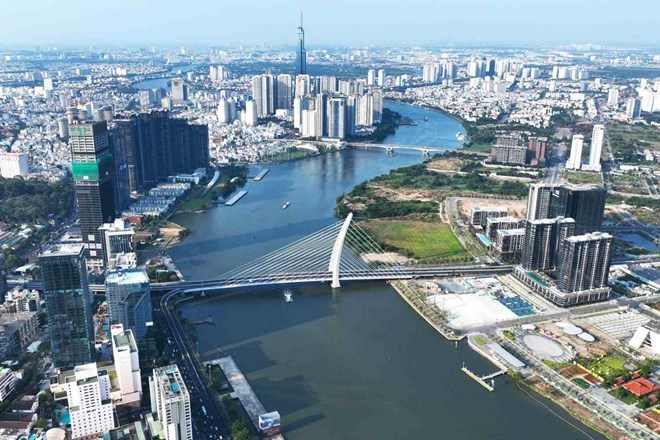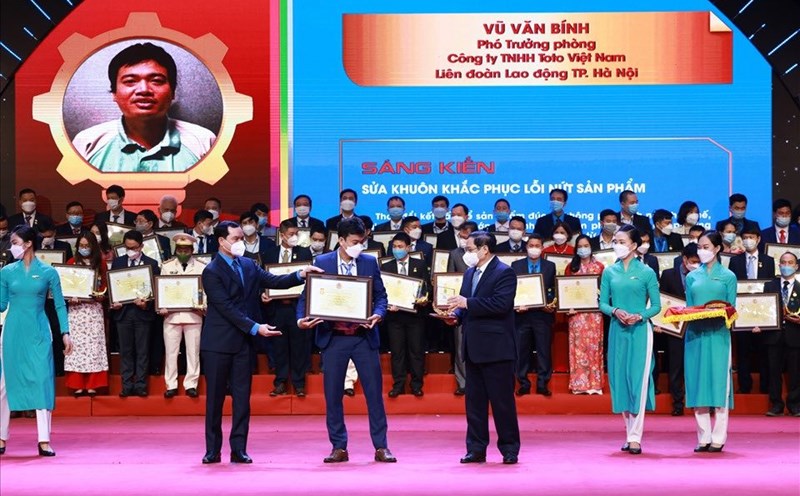The Ho Chi Minh City Real Estate Association (HoREA) has just sent a document to the Prime Minister, the Ministry of Justice and the Ministry of Agriculture and Environment, giving comments on the draft Law amending and supplementing a number of articles of the Land Law, and submitting it for appraisal on August 18, 2025. In particular, an important highlight is the proposal to expand land access to new subjects, in accordance with international practice and practices.
According to HoREA, the Housing Law 2023 has allowed foreign individuals to legally enter Vietnam to buy and own houses in commercial housing projects outside areas that need to ensure national defense and security. However, the 2024 Land Law does not clearly stipulate that foreign individuals are "land users". This creates a lack of synchronization between legal systems, while limiting the legitimate rights of this group.

HoREA believes that this is an important step forward, creating transparency, synchronization and in line with the policy of integration and attracting foreign investment.
Recognizing foreign individuals as land users does not cause adverse impacts on legality or security, because they are only allowed to buy houses in commercial projects approved by competent authorities and located outside sensitive areas, the HoREA comments document stated.
Another notable proposal of HoREA is to amend Article 37 of the 2024 Land Law to expand the right to mortgage land use rights and assets attached to land. According to current law, land users can only mortgage at credit institutions licensed to operate in Vietnam. This limits the rights of organizations and individuals, especially overseas Vietnamese and foreign investors.
HoREA proposes to allow mortgaging of real estate at credit institutions abroad, but must be done through credit institutions designated by the State Bank. This mechanism both meets the need to mobilize capital from many different channels and ensures national security factors. HoREA believes that this is a solution in line with international practices, and at the same time refers to the experience of many countries, typically Malaysia.
In case of dispute, the real estate ownership arbitration will still handle the case according to Vietnamese law, so national sovereignty is completely guaranteed - HoREA emphasized.
In addition to the two recommendations above, HoREA also proposed amending related provisions to ensure fairness for investors when accessing land. Accordingly, not only limiting the right to receive a transfer of residential land, investors need to have the right to negotiate the right to use other types of land in accordance with the planning to develop commercial housing projects. This proposal comes from the fact that many projects have been stalled due to the regulation of "only receiving land use rights for residential purposes", while investors have owned or can convert other types of land according to the plan.
In addition, the Association also emphasized the role of the mechanism for refunding compensation, support and resettlement funds to investors. If the enterprise has advanced the cost of site clearance through the agreement to receive land use rights, it must be refunded by the state budget by deducting it from the land use fee or land rent payable. This is a fair way of doing things, both protecting the rights of investors and encouraging them to be proactive in the project implementation process.
According to HoREA Chairman Le Hoang Chau, expanding land access for foreign individuals and diversifying capital mobilization channels through mortgages at foreign banks is not only a step in line with the integration trend, but also contributes to unlocking land resources, creating momentum for socio-economic development.
Land is a particularly important resource. Only when the legal system ensures consistency, transparency and equality for all participants will land truly become a driving force for national development" - Mr. Chau emphasized











